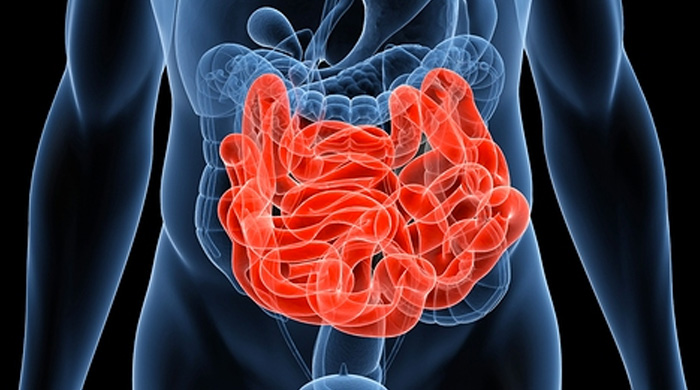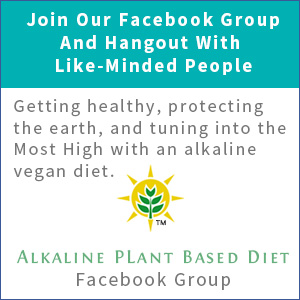Small Intestine Cleanse Of SIBO And Mucus

The Small Intestine
The small intestine is the part of the gastrointestinal tract following the stomach, and is where most of the absorption of food takes place.
The first stage of digestion consists of chewing food to break it down into smaller pieces.
The second stage of digestion happens in stomach. The body releases hydrochloric acid and gastric enzymes into the stomach to kill bacteria in the food, and break down the structure of proteins.
The hydrochloric acid and the gastric enzymes only partially digest the food the enters the stomach. This partially digested food called chyme is moved to the small intestine in the third stage of digestion.
The Role Of The Small Intestine
Once the food moves from the stomach to the small intestine, the hormone secretin causes the pancreas to release bicarbonate into the small intestine to protect it against acid coming from the stomach.
The pancreas also releases digestive enzymes into the small intestine to break down proteins and peptides into amino acids, carbohydrates into sugars, and fats into fatty acids and glycerol.
The digestive process also extracts vitamins, minerals, and phytonutrients from the chyme, for their absorption through the walls of the small intestine into the bloodstream.
Small Intestine SIBO And Mucoid Buildup
Western diets centered on the consumption of processed and toxic meat, dairy, and foods overwhelm the digestive process over time. The stomach becomes less effective in killing bacteria and breaking down the proteins properly.
This creates a harmful cycle where the small intestine overproduces mucus to protect itself. Over time under-digested protein and bacteria build up in the mucus, which forms an unhealthy mucoid lining in the small intestine.
This results in small intestinal bacterial overgrowth (SIBO). SIBO, small intestinal bacterial overgrowth, is the abnormal increase in bacteria and types of bacteria in the small intestine.
Most SIBO cases involve the overgrowth of bacteria in the small intestine that would normally exist in the colon. Fewer cases involve the overgrowth of bacteria that normally live in the small intestine. Both change the natural environment of the small intestine and compromise its function.
Risk Factors For Small Intestinal Bacterial Overgrowth
The consumption of diets high in toxic meat, dairy, and processed foods contribute greatly to the development of SIBO. High meat and dairy consumption is problematic in itself. The consumption factory farmed meat and dairy makes their consumption even more problematic.
The factory farming process introduces high levels of bacteria, viruses, antibiotics, and fat into meat and dairy products. Their consumption compromises the health and function of stomach, small intestine, and colon over time.
SIBO risk factors include:
- Reduced stomach acid
- High antibiotic consumption
- Irritable bowel syndrome (IBS), Celiac disease (long-standing), Crohn’s disease
- Organ system dysfunction like liver, pancreas, and kidney disease which limits the body’s ability to remove toxins, and to properly process fat and sugar
- Diabetes type I and type II
- Prior bowel surgery
How To Clean The Small Intestine
The first step in reversing the harmful mucoid layer and SIBO in the small intestine should involve removing the consumption of meat, dairy and processed foods from the diet.
This would would address the cause of the problem, instead of addressing the symptoms of the problem. Eliminating or reducing their consumption would help the stomach properly perform its digestive functions.
The stomach would properly sterilize the chyme, and break down its proteins before sending it to the small intestine.
The next step would involve breaking down the unhealthy mucoid layer that contains under-digested protein and unhealthy bacteria.
The mucoid layer interferes with the peristaltic motion, or wavelike motion of the muscles of the small intestine.
The small intestine uses the peristaltic motion to move chyme through it for digestion.
The reduction in the wavelike motion allows chyme to stay in the small intestine longer the normal, and to build up in the mucous membrane lining of the small intestine.
The combination of the compromised mucous membrane and the under-digested protein develops a mucoid layer that resists removal.
You have to first remove the trapped protein in order to remove the SIBO compromised mucus.
I used the papain digestive enzyme extract from papaya and the bromelain digestive enzyme from pineapples to dissolve protein in the digestive tract.
I used mullein to remove the harmful mucus in the small intestine.
I now recommend a total herbal remedy to be used along with the mullein herb instead of the extracts. You can use a combination of cascara sagrada, prodijiosa, rhubarb root, and blessed thistle herbs to break up the putrid waste. You can find out more about these herbs in the gut cleansing section of my book Alkaline Herbal Medicine.
Consuming an alkaline plant-based diet, based on the Dr. Sebi Nutritional Guide, eliminated the toxins derived from meat, dairy, and processed foods.
These toxins compromised my digestive tract and led to the development of harmful mucus and SIBO in my small intestine. Herbs and plant-based digestive enzymes played a pivotal part in restoring the health of my small intestine.
Tags: bromelein, mucus, mullein, papain, small intestine cleanse







